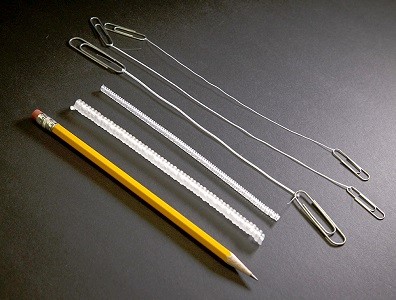
A group of international researchers from the University of Texas, Dallas have developed artificial muscle fibres from nylon sewing thread and polyethylene fishing line, which has the capability to replace the expensive and much weaker synthetic muscles that are produced today.
The researchers coiled and twisted a fishing line and sewing thread to create extremely powerful coiled threads, called artificial muscles that could both contract and relax.
These newly created muscles can carry very heavy objects and lift nearly a ton or rotate to produce as much horsepower as that of jet engine.
"In terms of the strength and power of the artificial muscle, we found that it can quickly lift weights 100 times heavier than a same-sized human muscle can, in a single contraction. It also has a higher power output for its weight than that of an automobile combustion engine", The Almagest quoted Professor John Madden, University of British Columbia Electrical and Computer Engineering.
The artificial muscles could be used as the "muscles" in medical devices that help people with impaired mobility, humanoid robots, exoskeletons and prosthetic limbs.
"The application opportunities for these polymer muscles are vast. Today's most advanced humanoid robots, prosthetic limbs and wearable exoskeletons are limited by motors and hydraulic systems, whose size and weight restrict dexterity, force generation and work capability", said Dr Ray Baughman, the Robert A. Welch Distinguished Chair in Chemistry at UT Dallas and director of the NanoTech Institute.
These artificial muscles are approximately ten times the diameter of a human hair and can lift around 7.3 kilograms (16 pounds) and a hundred of them together could lift 0.8 tons.
Artificial muscles made of carbon nanotubes cost around $4,000 to $5,000 for a kilogram of material, whereas, researchers spent $5 for the same amount of polyethylene fishing line or nylon fiber.
"The ultimate goal is to make textiles that result in comfort-adjusting clothing. A shirt infused with these artificial muscles could contract in cold weather, keeping a person warm, and expand in warm weather, creating pores to keep you cool", National Geographic quoted Baughman.
The details of the study have been published in Science journal.

















